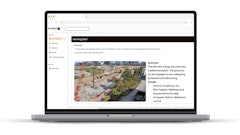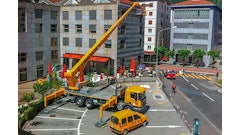With big victories in Seattle, Los Angeles and New York, a campaign to raise the minimum wage as high as $15 has bumped up against a harsh reality: plenty of scofflaw businesses don't pay the legal minimum now and probably won't pay new, higher wages either.
Some economists, labor activists and regulators predict that without stronger enforcement, the number of workers getting cheated out of a legal wage is bound to increase in places where wages rise.
Estimates on the size of the problem vary, but the Bureau of Labor Statistics said that in 2014, roughly 1.7 million U.S. workers — two thirds of whom were women — were illegally paid less than the federal minimum of $7.25 per hour.
The U.S. Labor Department investigates wage-law violations and is already doing a brisk business in enforcement cases. During the last federal fiscal year, it said it recovered $270 million in back wages for 270,000 workers.
But the agency's roughly 1,000 investigators, who police 7.3 million businesses employing 135 million workers, don't enforce state and local wage laws, for the most part. That means that cities and states that hike their minimum wage above the feds’ $7.25 rate are on their own.
That's causing some concern that, without robust enforcement, many workers could wind up being left behind.
Twenty nine states now have a minimum wage higher than the federal rate, and anti-poverty activists have been campaigning hard for municipal lawmakers to bypass both Congress and their state legislatures and set wages much higher.
Seattle, Los Angeles, and San Francisco and its Bay Area brethren, Oakland and Berkeley, have all begun phasing in a minimum wage that will hit $15 per hour within the next few years. Labor groups in California are trying to get a measure on the ballot increasing the rate to $15 statewide.
A regulatory board in New York took the unorthodox step last month of hiking the minimum to $15 for fast food workers.
Other, less expensive cities have been shooting slightly lower. Chicago and Kansas City, Missouri, are both raising the rate to $13. Albuquerque, New Mexico, and, Portland, Maine, are both raising rates to just under $11. Most of these raises are being phased in gradually over several years.
Some municipalities that have raised wages have talked about following the example of San Francisco, which created its own labor standards enforcement division.


















